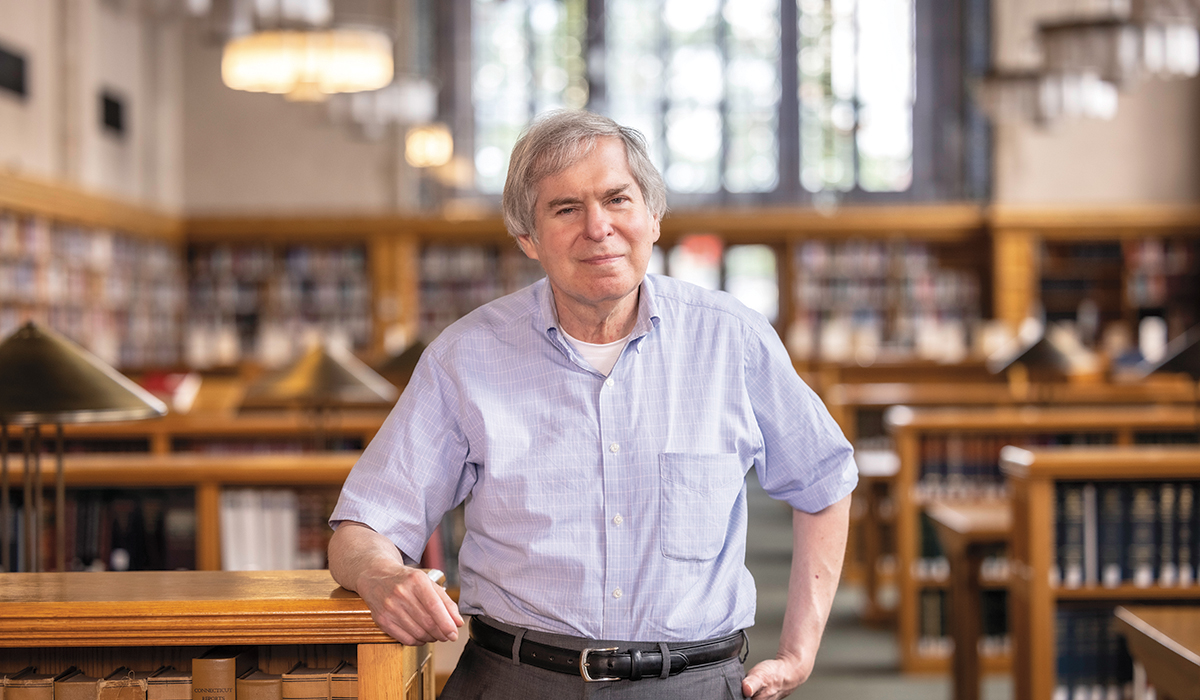

Dan Renzetti, Yale University
Fred Shapiro, M.S.L.S. 1983, editor of The Yale Book of Quotations, had a tough job not long ago: adding more than 1,000 quotes to update his book. The first edition, published in 2006, took 14 years to complete.
But another book launched Shapiro’s career as an editor of quotationaries.
“In 1993, I published The Oxford Dictionary of American Legal Quotations. Work on that book made me realize the deficiencies of the standard quotation dictionaries and caused me to develop novel research methods for tracing quotation origins,” Shapiro said. “I decided to apply what I had learned to compile a general quotation dictionary that would be more thorough, more accurate, and more up-to-date than its predecessors.”
Shapiro also decided to update the resource book because of the explosion of online historical databases of newspapers, journals, and books that had begun to proliferate when he edited the first edition. “I used those tools in its preparation. The explosion became even more powerful after The Yale Book of Quotations was published, and I wanted to expand the research in a new edition.”
Some of the inclusions in the second edition, published last year, are new quotes. Others are older ones he came across after the first edition went to press.
The process wasn’t without challenges. “Popular music, for example, is less literary in its song lyrics than in the days of Dylan and Lennon/McCartney, and it is tougher to unearth quotes that fit comfortably with the monumental lines of Shakespeare or Mark Twain.”
Still, he persevered, this time without any research assistants. But he didn’t do without help entirely. Some of the quotes in the second edition were suggested by readers and users of the first edition “who then sent me quotations or suggested improvements in existing entries. I constantly get very helpful emails from scholars, journalists, and ordinary people who just love quotations,” Shapiro said.
“Identifying the wittiest and most incisive quotes comes easily to me. I know them when I see or hear them. And my training as a librarian makes the research to unearth quotation origins also come easily.”
Shapiro — who is associate library director for collections and special projects and lecturer in legal research at Yale Law School — holds a J.D. from Harvard University. Prior to attending Catholic University, he earned his undergraduate degree from the Massachusetts Institute of Technology. He said his master’s degree in library and information science from Catholic University prepared him for everything that has come since.
“That program prepared me, not only for my position as an associate director of the Yale Law Library, but also taught me much about doing research,” he said. “Learning about research directly helped me to be able to compile books.”
It wasn’t just the program that left an impression, however.
“The people I encountered at Catholic University were wonderful. I made my way through the program by working as a paraprofessional in Mullen Library. My coworkers at Mullen were a great group, and my supervisor, Adele Chwalek (later the director of libraries), was one of the finest people I have ever met.”
As for Shapiro’s favorite quote? He said people always ask him that.
“It’s like choosing a favorite child,” he said. “One that I like is attributed to the economist John Maynard Keynes: ‘When the facts change, I change my mind. What do you do, sir?’”
Ultimately, though, Shapiro narrows it down to Groucho Marx’s famous line, “I don’t want to belong to any club that would accept me as one of its members.”
— A.K.